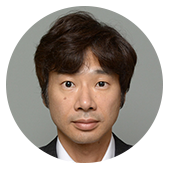The body, known as the "Diet of scholars," is designated as a special organization under the jurisdiction of the prime minister. It makes policy proposals independently of the government, and its 210 members represent about 870,000 scientists.
Half are chosen every three years. They are recommended by the council, and the prime minister makes the final appointment.
The six rejected candidates, among 105 nominees, have expressed opinions on issues that have divided public opinion in recent years. There are now concerns the government might be trying to keep out nominees it finds to be inconvenient.
The organization wants Suga to explain, and has also repeated its call for their appointment.
Council President and Nobel laureate Kajita Takaaki says Suga's actions are serious. “I believe the council is independent from the government to some extent, and addresses issues based on academic research. We cannot give up on that.”
The opposition parties met on Friday to hear from three of the rejected candidates, who say the new administration is endangering the future of academic inquiry.
“The government has repeatedly said during Diet deliberations that a prime minister should not influence the recommendations, and it's never been done before,” said Okada Masanori, a professor at Waseda University. “But this time, the government's words have been trampled on. This will greatly harm Japanese academics in the future.”
On Friday, Suga told reporters the decision was appropriate, and in accordance with the law.
Matsumiya Takaaki, a professor at Ritsumeikan University, disagrees. “To refuse without reason is illegal under the current laws,” he said. “In addition, the role of the council is to support Article 23, which protects academic freedom. I think the rejection of the nominees could eventually lead to constitutional doubts.”

Opposition party members are criticizing Suga's move. “I don't want to believe that the reason for removing the six is that they expressed their opposition to some government laws,” said Constitutional Democratic Party Secretary-General Fukuyama Tetsuro. “But if they were excluded for such a reason, we have to say the government's way of doing things is outrageous.”
Communist Party Chairperson Shii Kazuo said, “As long as he refuses to appoint the six academics, I think, at a minimum, the government has a responsibility to properly explain the reason to the public.”
Ruling coalition partner Komeito is also calling for a detailed explanation. “The government, especially the prime minister, has the right to appoint the members. That is the law,” said party Chief Representative Yamaguchi Natsuo. “I think it is important to explain this to the public in a way that is easy to understand,” he added.
Meanwhile, Chief Cabinet Secretary Kato Katsunobu said, “The government has recently made a change to the process it uses to appoint members of the Science Council, based on the realization that members should be able to serve from a broader perspective, far beyond their own academic specialties. The government reached its latest decision based on this thinking, and after vetting the list of candidates that was presented by the Council.”
He added that academic freedom must be guaranteed, because it is written in the Constitution.

